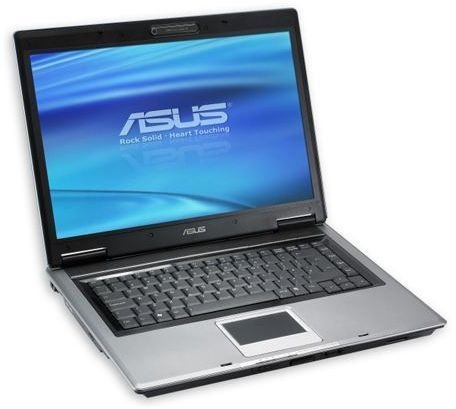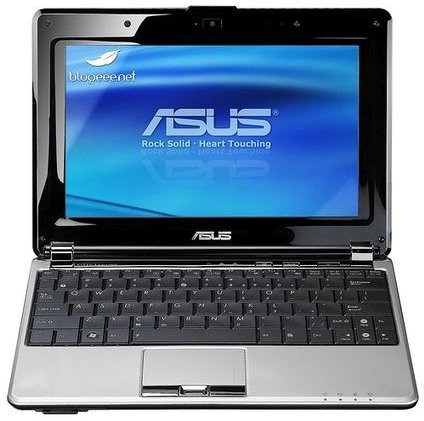Are Asus Laptops Good? A General Opinion Reviewing Asus Laptop and Netbook Technology
Introduction

Asus has been producing computer components since 1989 but has only recently exploded into the world of consumer laptops. Exploded is an appropriate word as they practically invented the concept of the netbook in 2008 with their Eee PC, starting a whole new trend of cheap and efficient little laptops. This popularity has also bolstered their laptop line and people began to recognize the great value and build of the company’s products.
But let’s not simply praise them for their innovation. Hype is often overblown and doesn’t stand up to actual testing. Are these laptops actually any good? How much is Asus sacrificing to get their low prices, and how much lower are they really than comparable brands? As someone who has an Asus netbook and who has done some research on their products (prior to buying one), I will can give you a runthrough of their product line. My general conclusion is this: their line of netbooks is still the best out there but their heftier laptops have some disadvantages you should look at prior to purchase.
Price and Range (4 out of 5)
Asus makes cheap laptops. No doubt about it. Their netbooks run around $300 and you normally get more for the price than you would in an HP or a Dell netbook of comparable price. The only reason they don’t get a 5 star here is because Acer has recently dropped their price to be slightly lower than the comparable Asus netbook.
If you are not into the small, weak netbooks they have a line of much more expensive laptops that have done really well on the market. These laptops range in price from $1000-$2000 and pack in some of the best hardware out there. We’ll get to the value of those prices in a moment, but for now we’ll say they are comparable to the prices of your average Dell, Sony, or HP.
What I like is that, if you are interested in something in between, Asus has a laptop that is the same size as their netbook (10.1 in) but packs in some better hardware without jacking up the price insanely like many laptop makers will. This laptop, the N10 series, runs around $700 and packs just enough hardware inside to run Vista and your normal applications. I like that Asus offers this option when many other companies do not.
Hardware and Performance (5 out of 5)
Computer companies love to throw out specs at you and impress you with big numbers. The true test of hardware is in the use and not in the large numbers. Sometimes in an effort to boost large numbers companies will skimp on the stuff that people don’t pay attention to. They might put in cheaper, slower motherboards or video cards so that they can add more RAM or a bigger harddrive. The best gauge of a computer’s hardware performance is to look at the reviews and thoughts of people who have used and, preferably, tested the performance of the computers.
In this case, Asus checks out in the laptop department. The general word is that Asus doesn’t cut corners when it comes to hardware. The customer comments on Newegg (a generally computer-savvy community) are enormously positive noting that Asus mid-range laptops ($900-$1500) really pack in high quality hardware for a moderate price. This isn’t something you see everyday.

Their high-end laptops are described as solid but clock about average for gaming laptops. Nothing particularly to brag about (as seen here and here)
Netbooks are harder to judge mainly because they are meant to pack low end hardware, so its not really fair to judge. However, I will note that the hardware capabilities found on any of the Asus netbooks offer plenty for running all of your everyday applications, particularly if you used web-based ones. My Asus netbook has a little trouble with large applications, such as the newer MS Word (occasionally freezing while I use it), but it runs everything online fine, including YouTube and Hulu. Keep in mind that if you want a netbook that still has the capabilities of a full laptop, Asus offers their N10 series. All bases covered.
Ergonomics and Durability (5 out of 5)
Asus is good at being innovative with its design, form, and layout. Case in point, they created the first netbook but they haven’t stopped there. A few months ago I was convinced I wanted an Acer netbook, the layout was comparable, the screen better, and the form a little nicer on the Acer. But then Asus came out with a new model and blew me away. They replaced the traditional touchpad with a textured surface that works brilliantly, moved a one button mouse (still works as a right and left click, it’s just one button), and replaced the screen with a much nicer glass one. Also, they flattened out the keys (so that they no longer have the traditional pyramid-like rise) making it far easier for those of us with larger fingers to type on the little netbook.
I expect that Asus will continue to innovate like this but the innovations they have already instituted are enough to go ahead and take a look at. Their laptops tend to be slick and well formed with a nice finish. They all come with a built-in webcam and with the sort of functions that make using a laptop easier, such as the button to turn off the keypad (I can’t tell you how helpful this is when trying to type on it).
As far as durability goes, their larger laptops are definitely a lot more sturdy than the netbooks. However, I think that the netbooks are less durable because they are small and tend to get thrown around a bit more because of it. Keep in mind that all laptops are rather easily damaged. However, I find that even my netbook has a form factor that is in many ways more durable than my previous laptop, which was a Dell.
Support (3 out of 5)
This is the main risk you run when buying an Asus. The support for Asus is still somewhat sketchy. Unlike your other big companies (like HP and Dell) Asus doesn’t offer the same sort of support structure and plans. If you aren’t the biggest computer person this means you’ll probably want to invest in a third-party support plan, such as Best Buy’s black tie protection or some other extended warranty. Keep in mind, all laptops will break, sometimes very quickly. Asus, like any other company, will replace the hardware within a limited time, normally about a year, if it fails due to manufacturing error, but won’t cover any accidental damage.
With regard to adhering to the warranty Asus has done fine. A friend of mine had to get his screen replaced after a few months and it was done in just a week from the time he shipped it out. Also, I’ve noticed that Asus has been aware of the comments and problems people express on the internet offering support and hardware replacements for those people who go online and complain about faulty hardware. This shows they are willing to go out of their way to help people who don’t receive the best. However, they are not the only company who does this.
So just keep in mind that, if you purchase an Asus, you’ll also need to factor in the cost of a protection plan and extended warranty. However, I deem this Average (3 stars) because I’d suggest you do that with any laptop. Asus simply doesn’t provide their own option like HP and Dell.
Conclusion
So there we have it, quite a lot of reasons to seriously consider Asus for your next laptop. As always, however, I would suggest that you take your time and shop around. If you are buying online take the time to go into a store and look at the design of their laptops and talk to some of the salespersons to see what customers say about them. There is no doubt though that Asus has established itself as an exceptional laptop producer who can provide good quality products as a good price. So the answer to your question is, yes, Asus laptops are good and they are worth taking a look at.